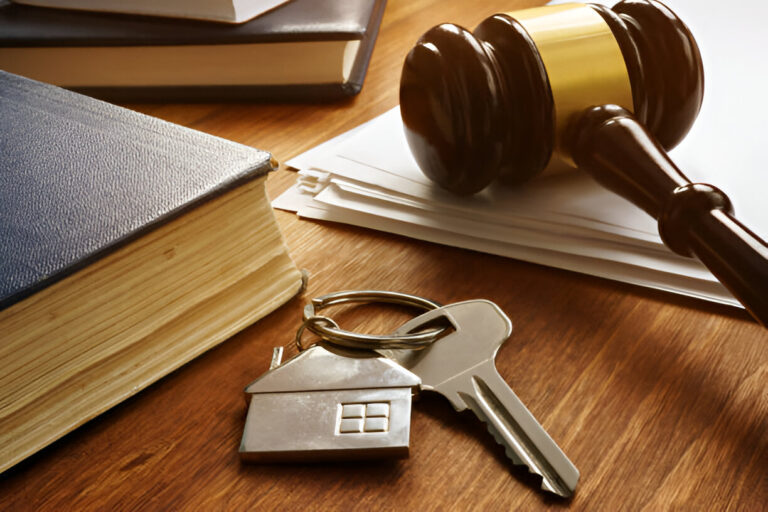Legal matters can be intimidating, especially if you’re not sure whether your situation qualifies as something a court would consider. Knowing whether you have a legitimate case can save time, money, and emotional energy. It also gives you a sense of direction whether you should consult an attorney, gather evidence, or simply move on. But how do you determine if your issue is one that the legal system can address?
This article will guide you through key factors that help identify whether you may have a viable legal case. From understanding legal standing to examining damages, we’ll break down what you need to consider before taking the next step.
Understand the Basics of a Legal Case
At its core, a legal case arises when one party believes another has broken the law, resulting in harm or injury. A case can be civil or criminal. In civil cases, one person sues another for wrongdoing, such as a contract breach, personal injury, or property damage. Criminal cases involve actions considered offenses against society, like theft, assault, or fraud.
To begin assessing whether you have a case, you must understand the elements involved. Every claim—whether it’s for negligence, breach of contract, or discrimination—has certain legal criteria that must be met. Failing to meet even one of these may result in your case being dismissed.
Evaluate Legal Standing
Legal standing is your right to bring a lawsuit. This means you must be directly affected by the situation. You can’t usually sue on behalf of someone else unless you’re their legal guardian or hold a specific legal power to do so.
For example, if you were injured in a car accident caused by another driver’s negligence, you have standing because the harm was done to you. On the other hand, if your friend was hurt but you were unharmed, you likely cannot bring the case yourself.
Identify a Violation of Law
Having a personal grievance isn’t enough you must show that someone broke a law or legal duty. In personal injury cases, this might involve proving negligence. In employment law, you would need to demonstrate that your employer violated labor laws.
This part often requires legal knowledge or advice from an attorney. For instance, if you were fired from your job, you might feel it was unfair. However, unless your dismissal breached an employment contract or violated anti-discrimination laws, you might not have a strong legal case.
Establish Damages
The law provides remedies for harm, not inconvenience or annoyance. You must be able to show that you suffered actual damage—physical, financial, emotional, or otherwise. The more clearly you can demonstrate your losses, the stronger your case.
Examples of damages include:
- Medical expenses
- Lost wages
- Pain and suffering
- Property repair or replacement
- Emotional distress (in some cases)
If you cannot prove any loss, a court may decide there is no case, even if wrongdoing occurred.
Assess Evidence and Documentation
Evidence is the backbone of any legal case. Without proof, your word alone is often not enough. Think about what documentation or witnesses you have to support your claim.
Some types of useful evidence include:
- Written agreements or contracts
- Photographs or videos
- Emails, text messages, or letters
- Medical reports
- Witness statements
Start collecting any relevant documentation early. Even if you later consult a lawyer, having this information prepared will help streamline the process.
Consider the Statute of Limitations
Every legal claim has a deadline known as the statute of limitations. Once this time passes, you can no longer file a lawsuit—even if the facts are on your side. The time frame varies depending on the type of case and your location.
For example, personal injury claims often have a statute of limitations of two or three years from the date of the injury. It’s essential to act promptly so you don’t miss your window to pursue justice.
Seek Legal Advice
One of the best ways to find out if you have a case is to speak with a qualified attorney. Many offer free initial consultations where they evaluate your situation and help you understand your legal options. This can provide clarity and save you from investing time and money in a weak case.
An attorney can help interpret the law as it applies to your circumstances, weigh the strength of your evidence, and explain possible outcomes. While you can start the evaluation process on your own, professional legal advice can often make all the difference.
Use Online Legal Tools with Caution
There are online quizzes and tools that claim to tell you whether you have a legal case. While these can be helpful for educational purposes, they are no substitute for professional legal guidance. Always verify any online information with a qualified legal expert before taking action.
That said, these tools can help you organize your thoughts and prepare for a consultation. They may guide you in understanding basic legal concepts or identifying areas where you need more information.
Be Realistic About the Process
Even if you have a valid legal case, court proceedings can be long, stressful, and expensive. Think about your goals and whether litigation is the best path. In some cases, mediation or negotiation might yield better results with less effort.
Additionally, consider the emotional toll a legal battle might take. Sometimes, it’s not just about winning the case—it’s about choosing the path that serves your best interests in the long term.
Conclusion
Determining whether you have a legal case requires a mix of common sense, evidence gathering, and professional input. You need to consider standing, the violation of law, the damages you’ve suffered, and whether you have the necessary proof to back your claims. Don’t rely on assumptions take the time to understand the elements of your case.
The best way to find out if you have a case is to consult with a knowledgeable attorney who can provide clear and specific advice. While the legal world may seem daunting at first, having the right information can empower you to take confident steps toward justice—or peace of mind.
FAQs
Q: What is the first step I should take if I think I have a case?
A: Start by gathering evidence and writing down everything that happened in as much detail as possible. Then, consult a lawyer to evaluate your situation professionally.
Q: Can I still have a case if I don’t have physical injuries?
A: Yes. Many legal cases, such as those involving contract breaches or defamation, don’t involve physical injuries but still qualify as valid claims.
Q: How do I find the right attorney?
A: Look for lawyers who specialize in your type of case (e.g., personal injury, employment law). Use state bar association websites or referrals from trusted friends to find reputable professionals.
Q: Is it worth pursuing a case if the damages are small?
A: It depends. For small claims, you might consider small claims court, which is less formal and doesn’t usually require a lawyer. Evaluate the cost vs. benefit of pursuing legal action.
Q: How can I avoid legal scams or fake legal help online?
A: Stick with trusted sources official legal directories, law firm websites, or state bar associations. Be wary of anyone who asks for large upfront fees without a contract or verifiable credentials.


